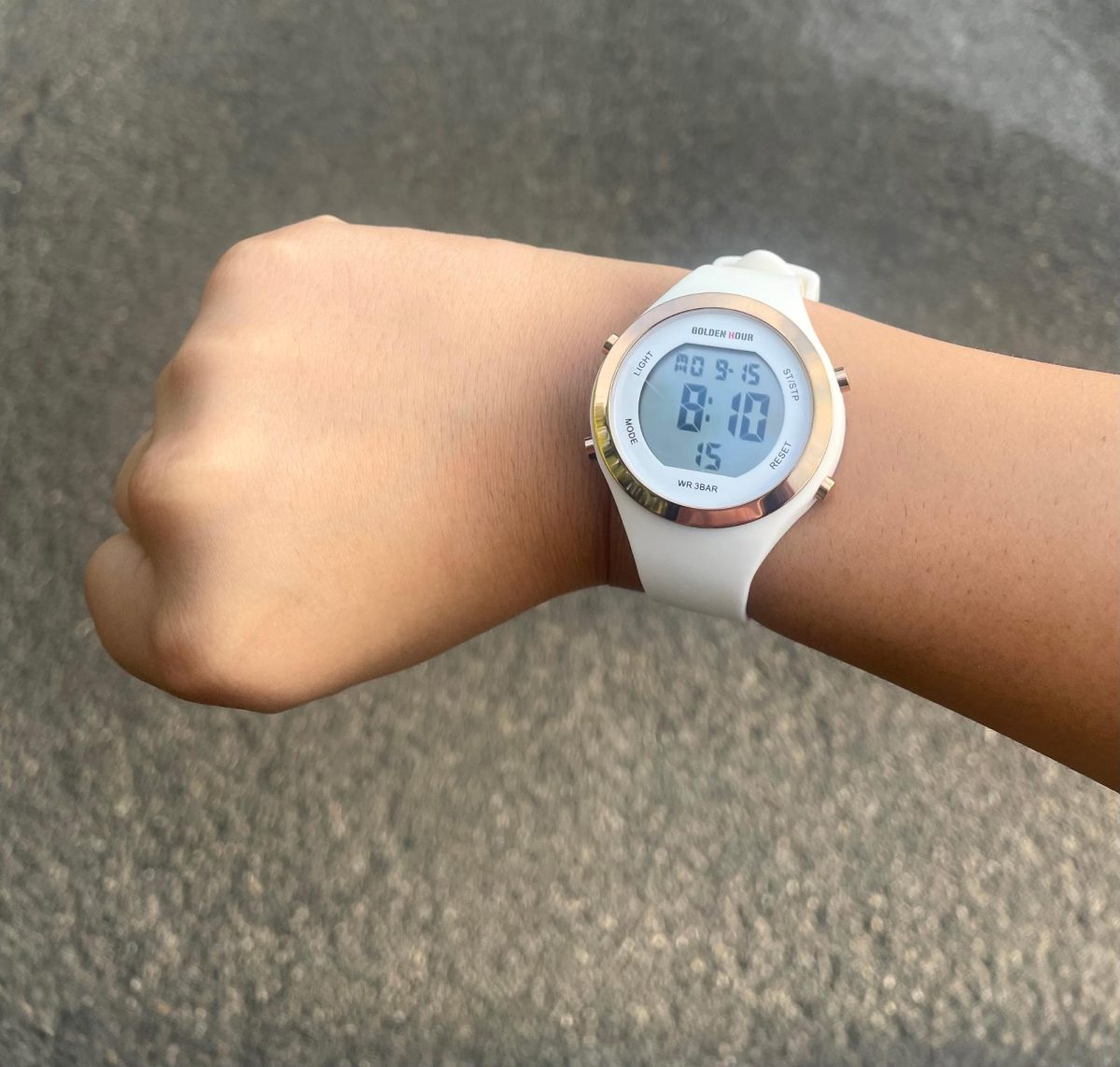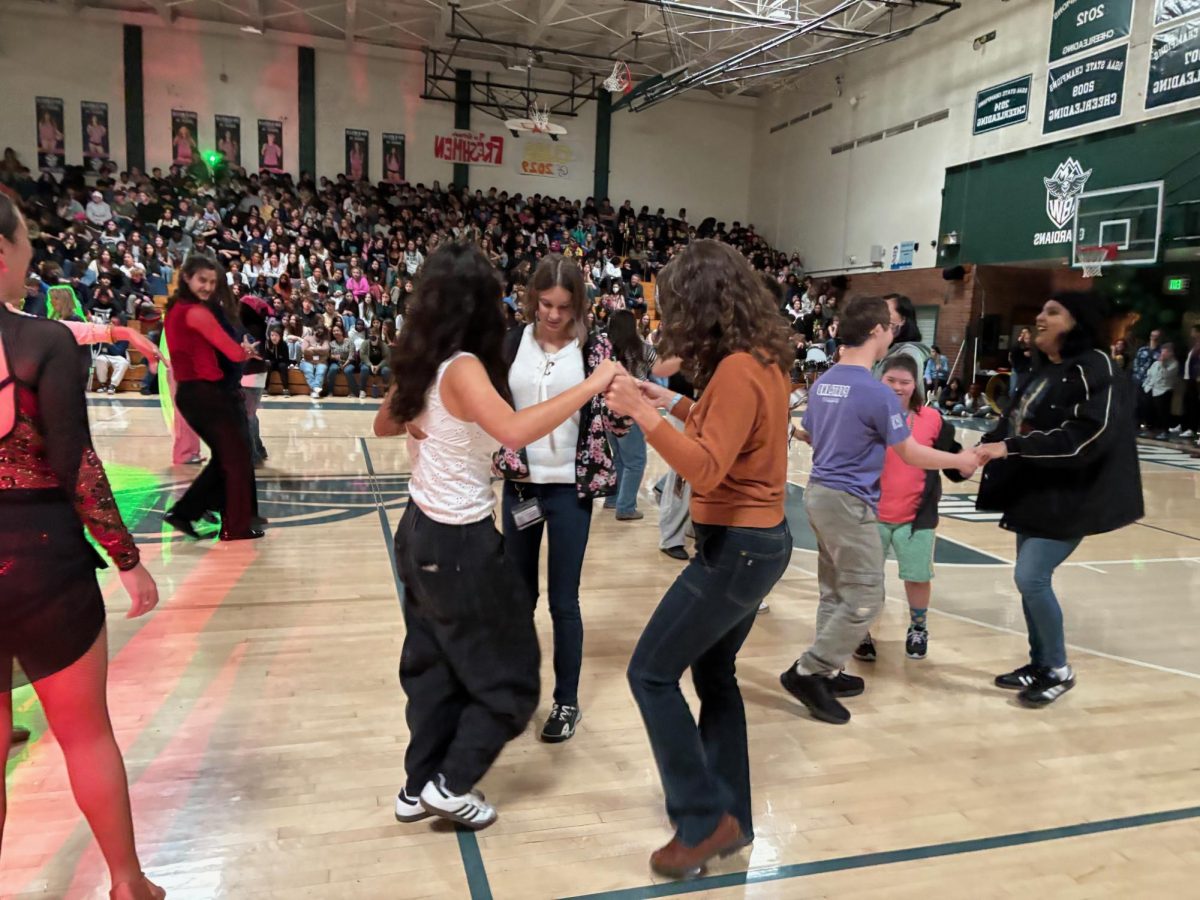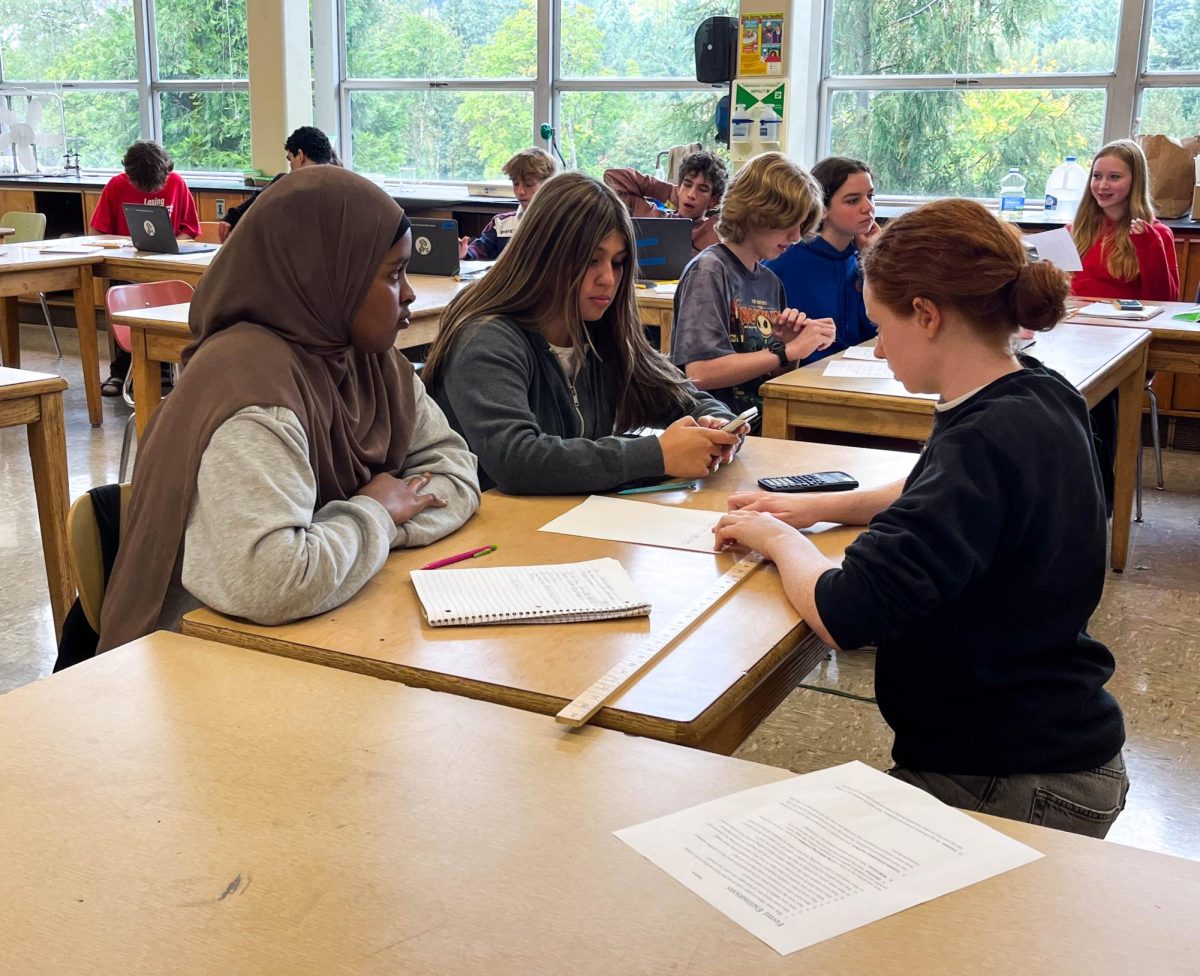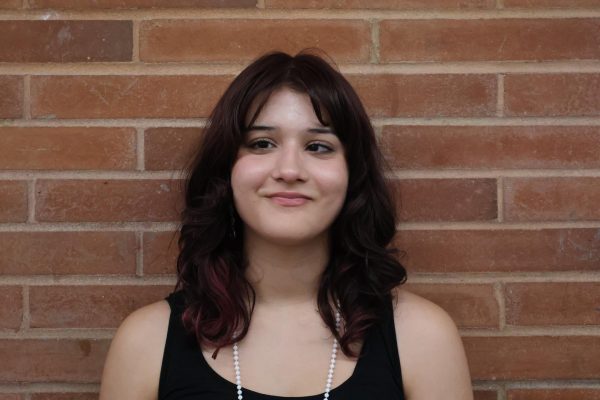Disclaimer: Anastasia Von Antz used to be a staff writer for “The Headlight,” but has since left the pathway.
Starting the week of Sept. 15, 2025, Ida B. Wells-Barnett High School is introducing the Tardy Intervention Program (TIP) in an attempt to get more students to class on time.
Once TIP is in place, each Friday, all students’ tardies will be totaled. Students who have more than three tardies in one week will receive a tardy slip the following Monday. This tardy slip indicates they will need to spend their lunch period in the cafeteria with a school administrator on a Tuesday or Thursday that week. If a student misses their required lunch detention, they will have to make up that time after school.
This program hopes to incentivize students to arrive at class on time.
“What I’ve seen in my three years of being at IBW is that there is not a lot of importance placed on being on time to class,” said Scott Burns, the 12th-grade vice principal at IBW. “Last school year, we had 40,000 tardies.”
Last year, IBW implemented the 90 Percent Attendance Policy, which meant that school dance attendance required students to be marked “present” in their classes 90 percent of the time. This policy did not address tardiness, only absences, meaning students could still be late to class most days and go mostly unpenalized besides an occasional call or email home from a teacher.
This year, any students participating in clubs managed by the Oregon School Activities Association (OSAA), students with unexcused absences, or “late after tardies” (LAT), showing up to class 20 more more minutes late, will not be able to participate in after-school events or competitions for those activities.
“We’re trying to help students with that skill of planning their day to be on time,” said Burns.
“And the importance of the impact they have on their classroom when they arrive late.”
Some students feel this policy is unfair, given that lunch and passing periods are relatively short.
“Lunch is very short, yet we are expected to make it through the lunch line or walk to the food carts, which can take the full 30 minutes,” said Anastasia Von Antz, a senior at IBW, “If you go to the bathroom during passing period, you have a high likelihood of being late.”
Students who take public transit, such as TriMet, may also be unfairly affected, as bus delays are frequent.
Another issue is that each teacher takes attendance at a different time during the class period. Some consider the sound of the bell to be the late cutoff, while others allow for some grace. This could make TIP enforcement inconsistent.
Some students have proposed solutions to these problems. Implementing an excused tardy for morning students affected by buses, allowing a five-minute grace period before students are marked tardy and working to find a solution to hallway congestion so students can get to classes more efficiently.









